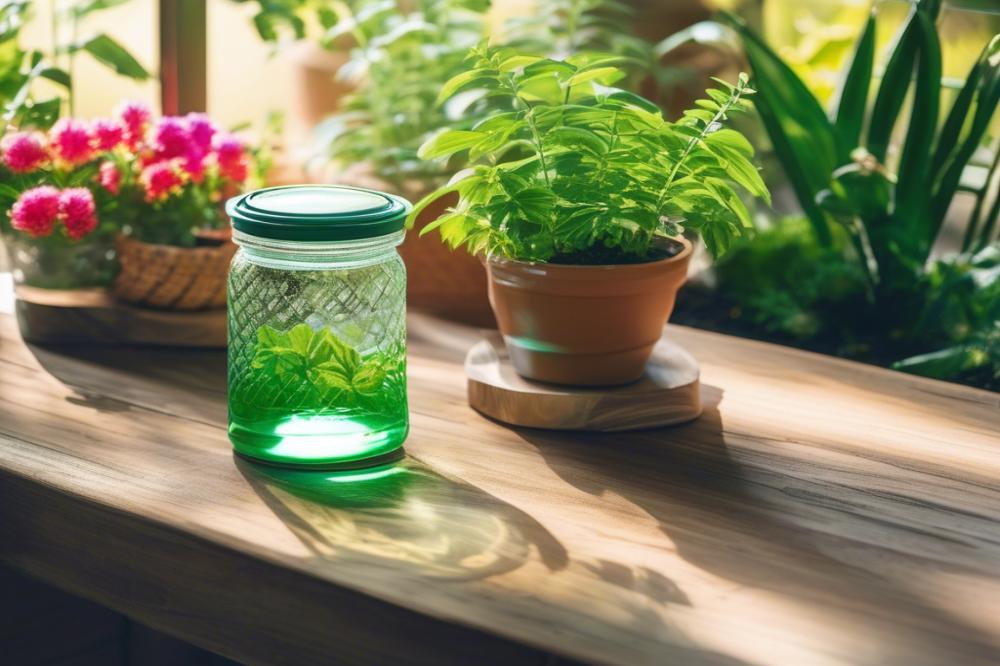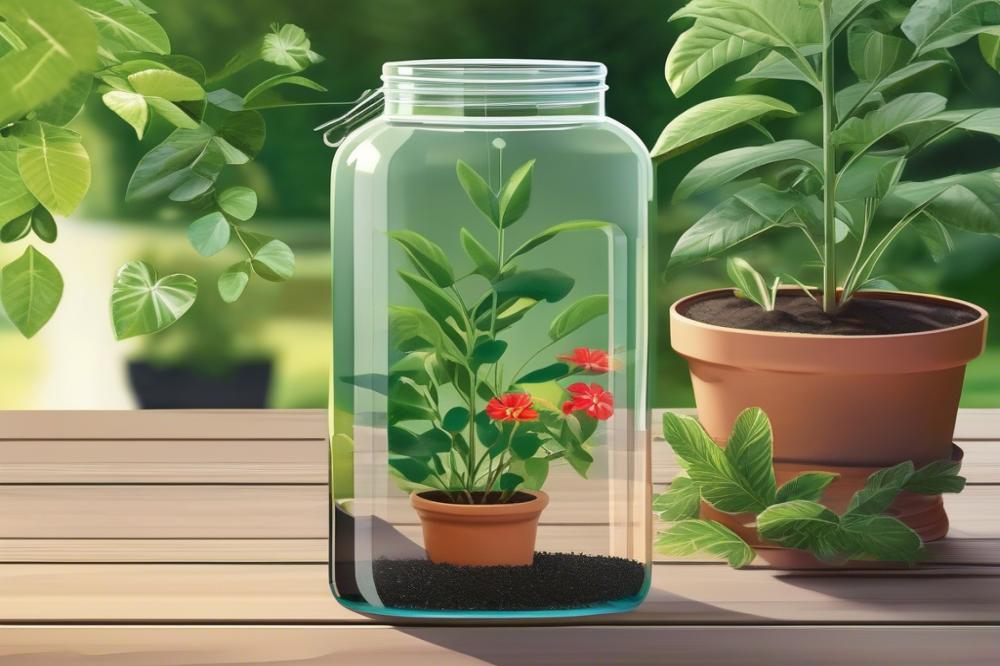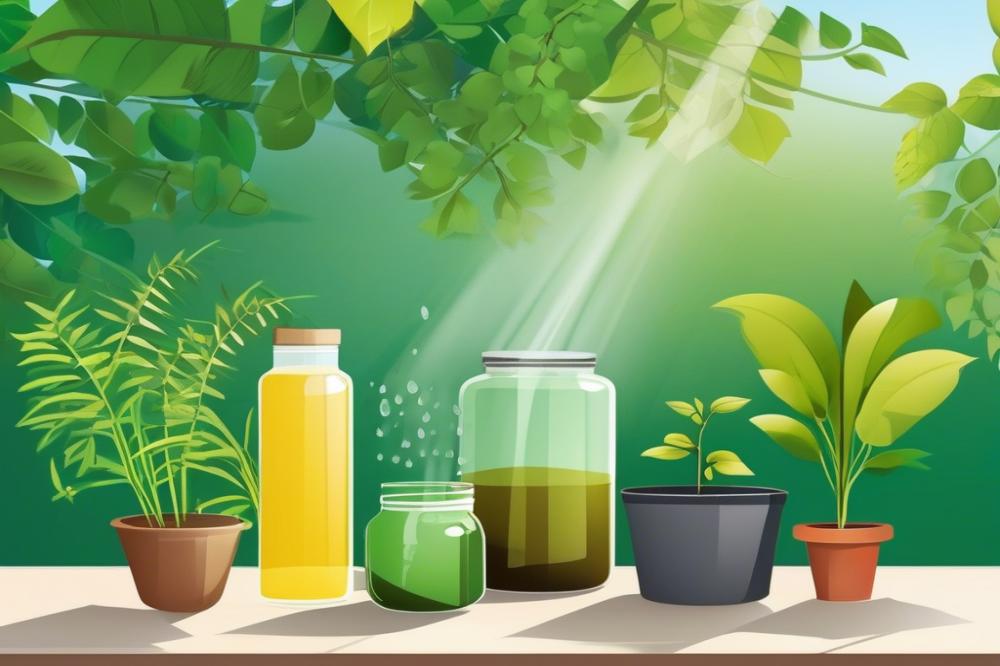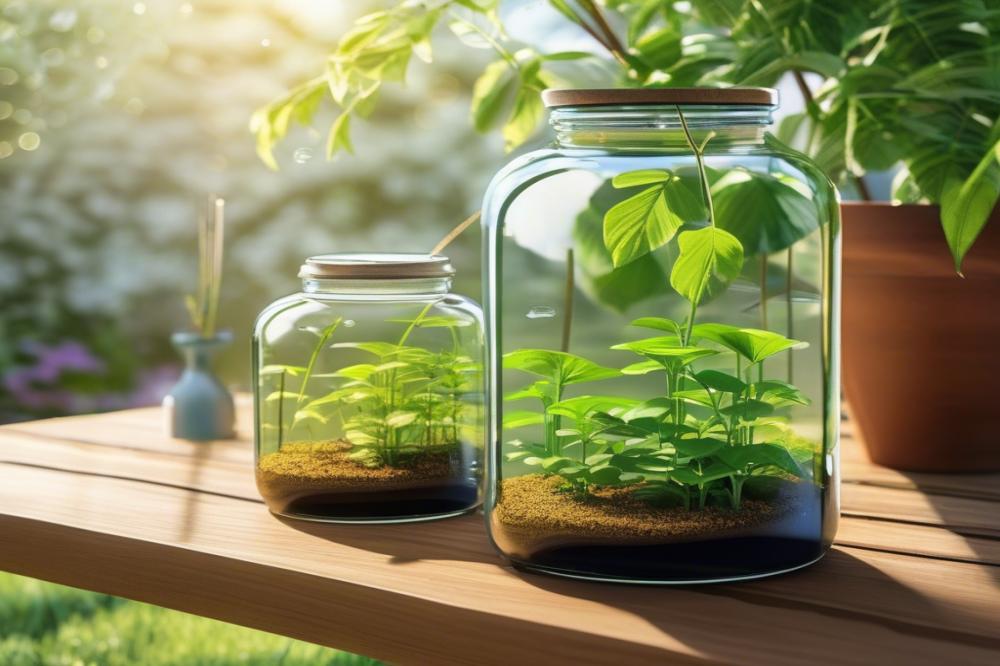Understanding ash water for Eco-Friendly Plant Care
ash water is a simple solution made from the residue of burned wood or plant material. It is rich in nutrients like potash, which benefits plant health. By using this liquid, gardeners can tap into a natural pesticide that serves as an insect repellent against common garden pests. This method aligns perfectly with organic gardening principles, promoting healthier plants without harmful chemicals.
In today’s world, the importance of eco-friendly solutions in gardening cannot be overstated. With the growing awareness of environmental issues, more people are seeking effective, safe alternatives. Organic practices not only improve soil quality but also protect the ecosystem. By choosing DIY solutions like ash water, you contribute to a sustainable approach while enhancing your pest control methods.
This article will focus on the various ways you can use ash water to support plant protection. We’ll cover valuable gardening tips that help you implement this technique effectively. Discover how this natural approach can transform your horticulture experience. Learn how to create and utilize ash water, and enjoy the peace of mind that comes with using a safe, organic method for pest management.
Understanding Ash Water


Ash water is a liquid derived from dissolving wood ash in water. This natural solution has become popular among gardeners for its effectiveness in pest control. Composed mainly of potassium and various trace minerals, it offers numerous benefits for plant health.
Sources of Ash
Wood ash is the most common source. It comes from burnt hardwoods and is often available from fireplaces or wood stoves. On the other hand, potash is derived from various plant materials. This organic gardening ingredient is harvested from natural sources and adds valuable nutrients to the soil.
Nutritional Benefits for Plants
One standout feature of this liquid is its high potassium content. Potassium helps plants with numerous functions, including water regulation and overall growth. Moreover, the additional minerals found in ash can contribute to well-rounded plant nutrition. Using it as a natural pesticide is one of the many DIY solutions that eco-friendly gardeners appreciate. Added benefits also include its role as an insect repellent, which aids in pest control without harmful chemicals.
These gardening tips encourage the use of ash water for healthier plants. Encouraging strong root systems and increasing resilience to pests can make your horticulture efforts more successful. Consider incorporating this simple, effective solution into your gardening routine for thriving green life.
Preparing Ash Water for Use


Making ash water is a simple and effective way to protect your plants from unwanted pests. Follow these steps to create your own insect repellent, a fantastic DIY solution for gardening.
Step-by-step guide on how to make ash water
Start by collecting wood ash from your fireplace or fire pit. Use ashes from untreated wood for the best results. Next, sift through to remove larger particles. This makes the mixture smoother and easier to apply. Then, take a container and add about one cup of ash to two gallons of water. Stir the mixture thoroughly to help the ash dissolve.
After mixing, let the solution sit for about 24 hours. This allows the nutrients to infuse into the water. Once the time is up, strain the liquid using a fine mesh strainer or cloth to remove any remaining solid bits.
Recommended ratios of ash to water
Using the right ratios is essential to create an effective natural pesticide. Most gardeners find that one part ash to ten parts water works well. However, adjusting this ratio can yield different strengths. For a stronger mixture, increase the ash to about one part for every five parts of water. Experiment and see what works best for your plants.
Safety measures and considerations
While ash water is eco-friendly and generally safe, it’s wise to take precautions. Wear gloves when handling wood ash, as it can irritate your skin. Also, avoid inhaling dust from the ash. These simple measures can protect your health. Store any remaining solution in a cool, dark space to maintain its effectiveness.
Always do a patch test on a small plant area before widespread application. This assesses the plant’s sensitivity to the solution. Remember, keeping an eye on your plants is essential for maintaining their health. In organic gardening, balance is key, and using ash water can be a valuable part of your pest control strategy. Following these gardening tips will help ensure thriving plants and effective pest management.
Applying Ash Water as an Insect Repellent


Ash water serves as a natural pesticide that many gardeners love. It contains potash, which is effective in repelling pests without harming the environment. This eco-friendly option is perfect for those interested in organic gardening methods. Knowing how it acts can make a big difference in your plant health.
How It Works
The minerals in ash water disrupt the life cycle of various insects. When these tiny creatures come into contact with it, they may find it difficult to feed or reproduce. This means using it regularly can help keep your garden free from troublesome pests.
Which Insects Are Deterred
This method is particularly effective against soft-bodied insects like aphids and mites. Additionally, it can help repel larger threats such as slugs and snails. Many gardeners report fewer infestations when using this DIY solution.
Best Practices for Application
Apply ash water every two to three weeks for the best results. Timing your application is important, too. Early morning or late afternoon is ideal, as this minimizes sun exposure and helps prevent leaf burn.
Use a spray bottle for easy distribution. Aim for the undersides of leaves where pests often gather. More thorough coverage will provide better protection against unwanted insects.
By following these gardening tips, you’ll see great improvements in your horticulture endeavors. Keep your plants thriving and pest-free with this simple yet effective solution!
Enhancing Plant Health with Ash Water


Using ash water offers a range of benefits beyond just pest control. This natural solution can significantly improve soil health. When added to your garden, it contributes vital nutrients that plants crave. Potash is one of the key nutrients, which helps with the strong growth of your plants. The nutrients in ash also promote a robust root system, essential for thriving plants.
Incorporate it into your gardening tips for an eco-friendly approach. Many organic gardening enthusiasts have discovered its advantages. This solution works as a natural pesticide, deterring harmful insects effectively. It’s a great way to maintain plant health without using harmful chemicals. Simple DIY solutions like mixing ash water into your watering routine or soil will yield noticeable improvements.
While controlling pests is a top priority, enhancing plant vitality should also be a focus. Healthy plants can fight off diseases and insect intrusions more effectively. With the right balance, your garden can flourish. Ash water will not only protect against unwanted pests but also nurture your plants in a holistic way. It’s a win-win for anyone serious about horticulture.
Combining Ash Water with Other DIY Solutions
Mixing ash water with other organic remedies can supercharge your pest control efforts. One excellent combination is combining it with natural soap. Soap not only helps to break down oils but also clings to those pesky insects, making it harder for them to escape.
For added potency, consider adding a few drops of essential oils like neem or peppermint. These oils are known for their insect-repelling properties. When you mix them with your eco-friendly solution, they create a powerful insect repellent that doesn’t harm your plants or the environment.
When crafting your pest control regimen, think about integrating various natural pesticides. Rotate your mixtures to keep pests guessing. Using different blends can improve your plants’ health and reduce the chances of insect resistance.
Gardening tips often recommend using potash in conjunction with ash water. This boosts nutrient levels in the soil, promoting strong plant growth while simultaneously keeping pests at bay. Strong plants are less attractive to insects.
Another approach is to spray your DIY solutions during specific times of the day. Early morning or late evening applications can enhance their effectiveness. Insects tend to be more active during warmer parts of the day, so targeting them when they are less mobile can yield better results.
Don’t forget to monitor your plants regularly. This helps you catch pest problems early. If you notice an uptick in insects, adjust your mixtures accordingly. Experimentation is vital in horticulture and will lead you to the most effective strategies for your garden.
Common Mistakes and Troubleshooting
Using ash water can seem easy, but there are pitfalls that many enthusiasts encounter. One common error is not using the right ash. Avoid using ashes from treated wood or materials that may contain harmful chemicals. Instead, opt for wood ash from natural sources like untreated trees or plants. This choice ensures your garden remains eco-friendly and safe for the environment.
Another mistake is improper dilution. Concentrated ash water can be too strong for plants and may cause damage. Dilute it well, aiming for a weaker solution that protects plant health without harming the foliage. Remember, you want a natural pesticide, not to burn your greens!
Signs of Ineffective Application
When pest control isn’t working, watch for certain signs. If you notice insects still thriving, application may have been inadequate. An increased presence of pests indicates that your treatment needs adjustment. Consider reapplying and observing the correct timing. A weekly routine often works wonders in organic gardening.
You should also monitor for any changes in your plants. If leaves begin to yellow or curl, that may mean your mixture was too potent. In that case, rinse the plants with water to dilute the ash residue. Remember, healthy plants repel insects better than those under stress.
Importance of Monitoring
Gardening tips often emphasize the need for vigilance. Regularly check your plants for signs of insect activity and overall health. Observing your garden allows you to make timely adjustments. If one method doesn’t succeed, consider other DIY solutions or variations to keep pests at bay.
Ultimately, successful horticulture relies on a proactive approach. Healthy plants can thrive even in the face of insect challenges. By staying alert and making necessary changes, you create a thriving garden while enjoying the benefits of potash. Your plants deserve the utmost care and attention to flourish!
Wrapping It Up
Using ash water for pest control is both effective and safe. It offers a natural alternative to harsh chemical sprays that can harm beneficial insects and the environment. The minerals in ash act as a unique insect repellent, helping to keep your plants healthy and thriving. Moreover, this method is easy to make and apply, making it accessible to everyone who wants to maintain a beautiful garden.
Adopting organic gardening practices is a smart choice for any gardener. Not only does it promote healthier plants, but it also protects essential wildlife in your garden. Embracing these practices can help restore balance to your garden ecosystem, benefiting both your plants and local wildlife.
Exploring DIY solutions like using ash water allows you to take charge of your gardening routine. Experimenting with homemade remedies can lead to healthier plants and effective pest management strategies. As you grow your gardening skills, remember that there are many paths to success without relying on synthetic chemicals.
In nature, many solutions are waiting to be discovered. Consider making the shift to using a natural pesticide as part of your gardening routine. With simple tools and a bit of creativity, you’ll be well on your way to a thriving garden that dazzles the eye and flourishes without harmful chemicals.



